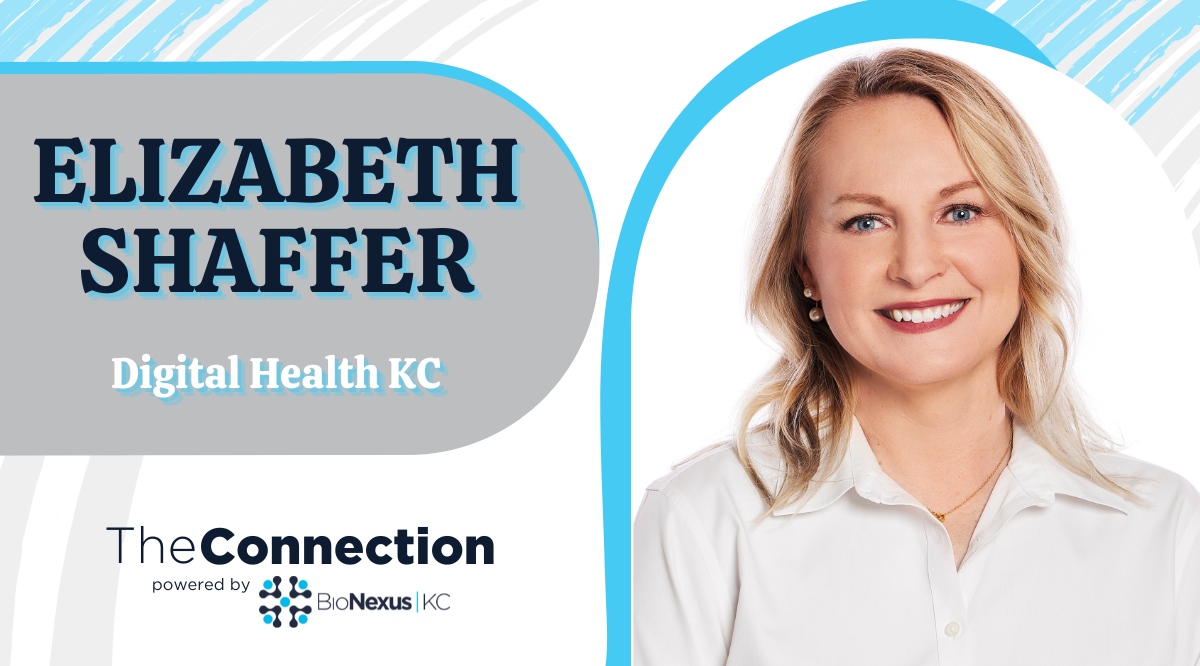
After a year-long exploration of the world with her family, Elizabeth Shaffer is energized and ready to take on a new challenge. Bringing a passion for connection and a wealth of experience, Shaffer joins Digital Health KC as Program Manager. Fueled by a belief in the power of collaboration, she’s eager to contribute to the organization’s mission of fostering a thriving digital health ecosystem in Kansas City. Her global perspective could prove invaluable in building connections across the digital health landscape.
Discover how Elizabeth’s travels will fuel innovation at Digital Health KC.
Q: What parts of the mission do you especially connect with?
A: Improving the well-being of communities has always been a driving force in my career. In my previous role, I championed data interoperability – ensuring your health data seamlessly follows you wherever needed.
Imagine visiting a hospital in Florida, where they can instantly access your allergies and test results! At Digital Health KC, we expand this concept of connectivity beyond technology. We focus on building an ecosystem where people, businesses, and resources connect. It’s like putting data where it needs to be but for the entire healthcare landscape. We connect companies with the talent and investors they need, fostering a thriving digital health hub. This focus on connection and building ecosystems perfectly aligns with the work I’ll be doing at Digital Health KC.
Q: Describe Digital Health KC in three words.
Connection. Ecosystem. People.
Q: What has surprised you about joining this team?
A: It’s impressive how much BioNexus KC and Digital Health KC achieve with such a small team! They’re tackling ambitious goals with limited resources. The secret sauce, I believe, lies in their collaborative approach. They connect with the right people and organizations to get things done. It’s a fascinating model of building a solid ecosystem through strategic partnerships.
Q: What is one thing that you can’t live without?
A: Books. I’m always listening to a book and reading a book simultaneously.
I just finished listening to Adam Grant’s book Think Again, which was fantastic! It explores the importance of relearning and revisiting our opinions and beliefs. Grant challenges the continual acceptance of information as accurate because we once learned it as such, and I think this is especially important in the healthcare and technology industries where there’s such a rapid pace of change.
Q: What inspired the family to take a year-long trip together?
A: I am energized and excited to return to work after a travel-filled mid-career break! We love exploring new places, and with limited vacation time, we dreamed of being able to take an extended adventure. We were fortunate to take this time while our kids were young, prioritizing quality time together now over waiting for an uncertain retirement.
Q: Can you share one highlight from your adventures?
A: Planning our trip was a blast! We’d gather as a family, excitedly exploring different destinations the kids learned about in school. We’d watch travel shows and say, “Let’s go there!” or “We can add that to our world trip!” One pivotal moment came when my third grader reported on whale sharks. He declared, ‘We’re swimming with whale sharks on our trip, right?’ Suddenly, Tanzania’s Mafia Island, known for whale shark encounters, became a must-visit. It was incredible! He chickened out of the first jump, though – these gentle giants are surprisingly fast! But eventually, he took the plunge, and it was an unforgettable experience!
Q: What surprised you the most about how your children adapted to new cultures and environments?
A: Beyond academics, the trip fostered incredible real-world skills. They became confident travelers, navigating airports and planning logistics. After nine months on the road in Japan, they planned a full-day trip, researching sights, mapping subways, and calculating walking distances. They even learned to delegate tasks! This experience wasn’t just about book smarts; they thrived in the real world and developed a sense of cultural empathy. They learned to adapt their behavior to different environments, understanding the importance of respecting local customs.